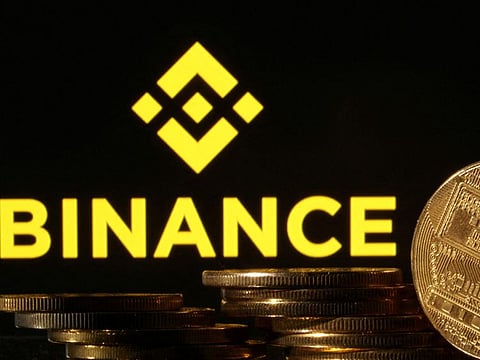Binance returns to South Korea’s crypto market through a stake in the GOPAX exchange
Digital Currency Group, is the second largest shareholder of GOPAX

Dubai: Binance Holdings has acquired a majority stake in the troubled South Korea-based cryptocurrency exchange GOPAX, returning the biggest digital-asset trading platform operator to a market that it exited two years ago.
The firm has taken a “meaningful” equity position in GOPAX, which halted withdrawals from certain products in November, according to Yibo Ling, chief business officer at Binance.
The funding of the purchase came from a Binance-led co-investment project called the Industry Recovery Initiative, to which Binance pledged $1 billion. Terms weren’t disclosed.
GOPAX’s parent company Streami Inc. is listed as one of the 10 largest known creditors of bankrupt lender Genesis Global. Genesis was the partner in a yield product offered by GOPAX, which suspended customer withdrawals in November. The US crypto lender’s parent company, Digital Currency Group, is the second largest shareholder of GOPAX, according to GOPAX’s blog post.
Binance plans to inject capital into the exchange so that customer withdrawals and interest payments can be made for GOPAX’s yield product GoFi.
“The fundamental thrust of this deal was to support customers and make sure that any customers who want to withdraw their assets have the ability to do so,” Ling said in an interview.
Asia footprint
Binance shuttered its operations in South Korea in 2021, citing low usage and volume. But late last year it expanded its footprint in Asia with the purchase of Sakura Exchange BitCoin in Japan.
South Korea was buffeted by last year’s crypto rout and the blowup of countryman Do Kwon’s TerraUSD algorithmic stablecoin ecosystem. A large number of South Korean investors lost money and Kwon is now a fugitive. That backdrop tarnished the digital-asset industry.
“We hope that taking this step with GOPAX will further rebuild the Korean crypto and blockchain industry,” Changpeng “CZ” Zhao, founder and CEO of Binance, said in a statement.
Binance late last year was hit by outflows amid a general lack of confidence in crypto due to the market slump and the collapse of rival FTX. A rebound in token prices this year has helped to steady sentiment.
Sign up for the Daily Briefing
Get the latest news and updates straight to your inbox



